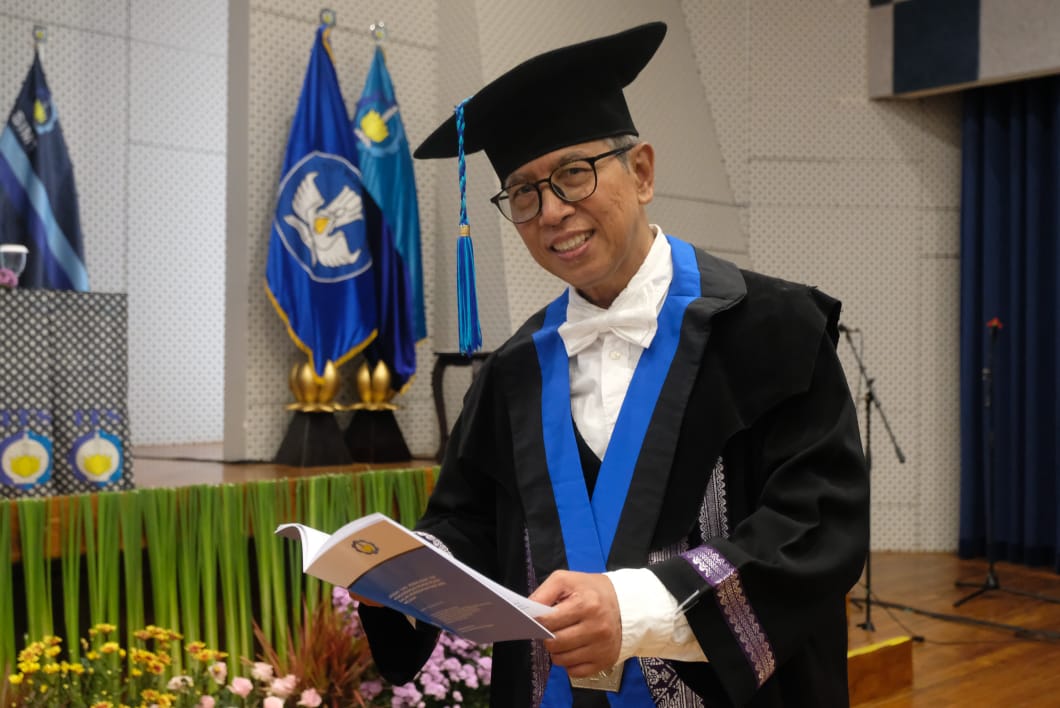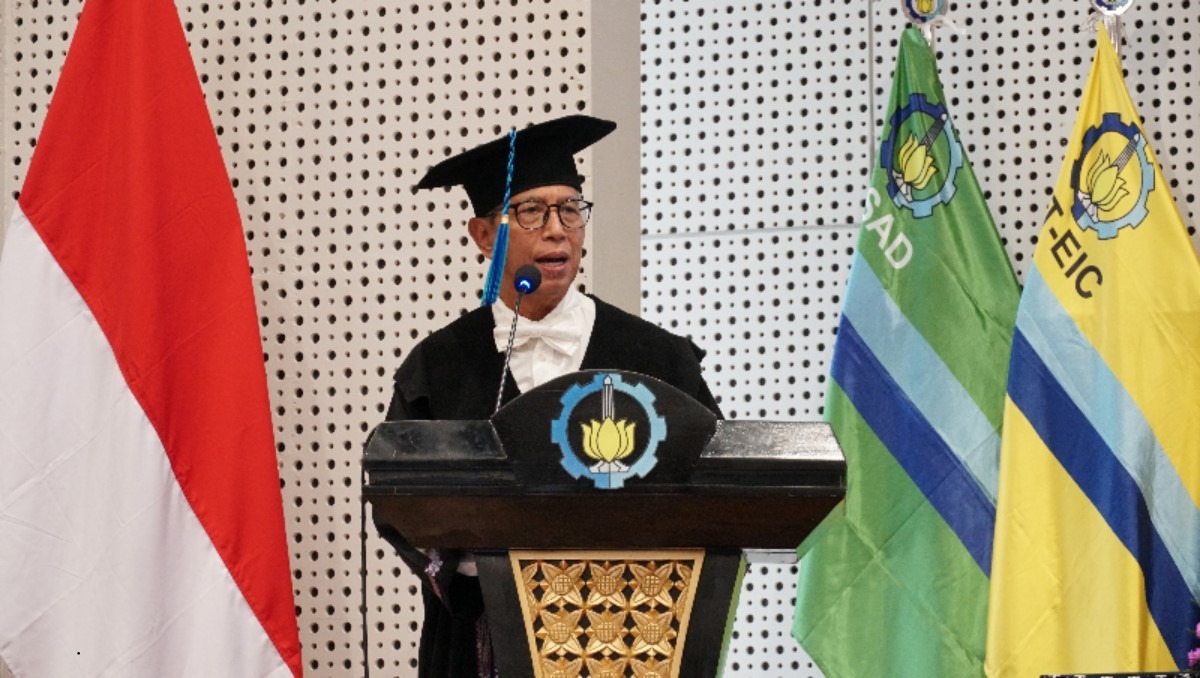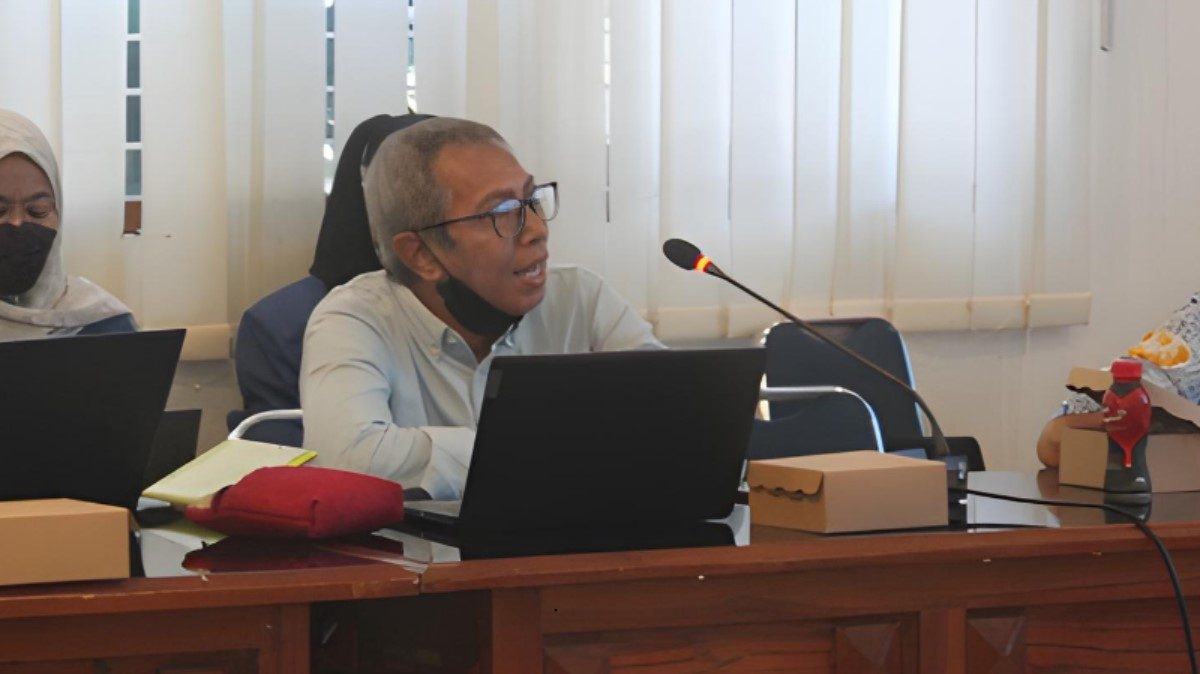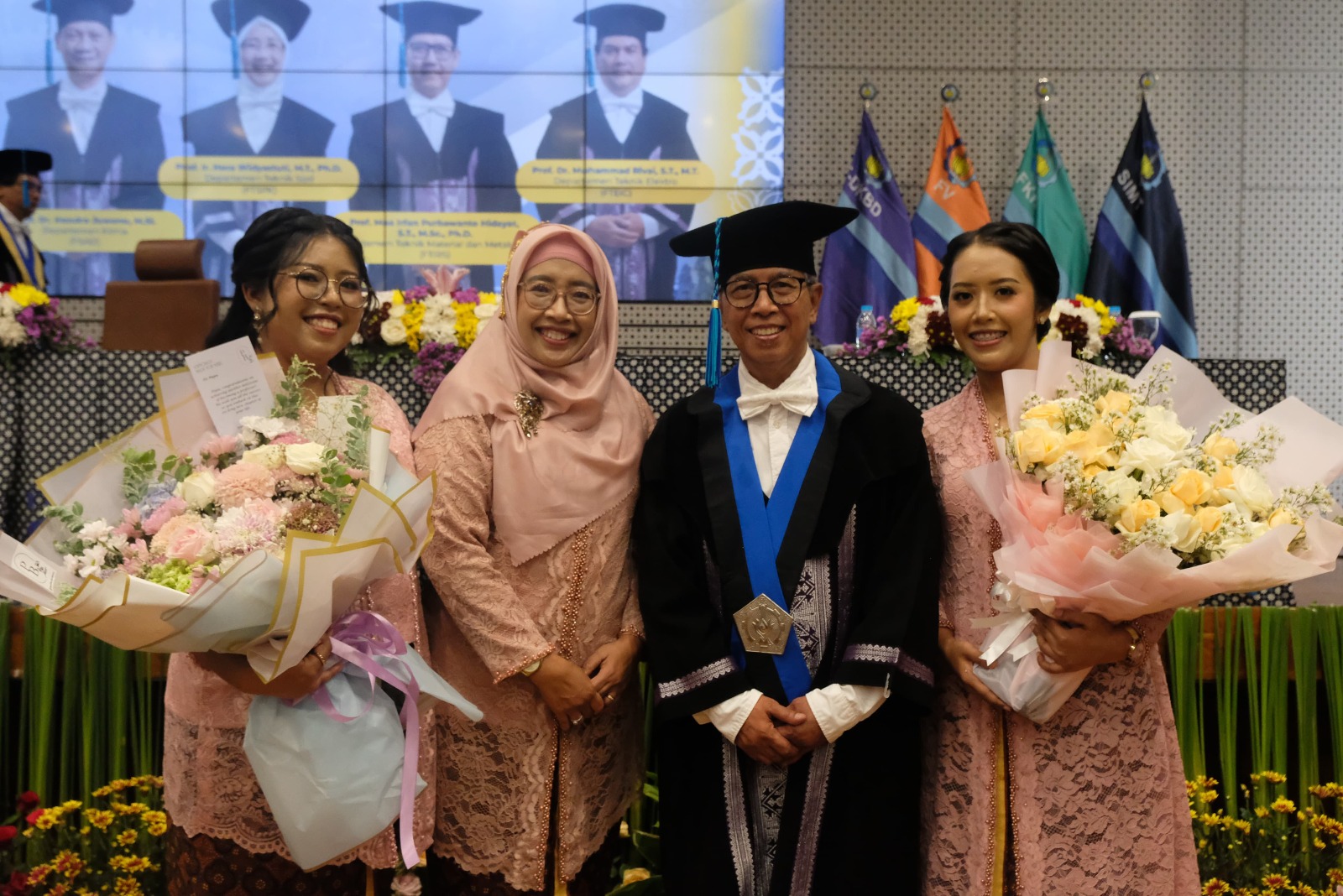ITS Professor Assesses Economic Inequality to Improve Regional Competitiveness

Prof Dr Ir Eko Budi Santoso Lic Rer Reg when explaining the contents of his scientific oration book after the inauguration of the professor at the ITS Research Center Building.
ITS Campus, ITS News — In regional planning, economic inequality is one of the challenges in realizing the progress and independence of the nation. This prompted the 209th Professor of Institut Teknologi Sepuluh Nopember (ITS) Prof Dr Ir Eko Budi Santoso Lic Rer Reg to study further in the field of regional economic planning and development.
In his scientific oration, the Professor of the Department of Urban and Regional Planning (PWK) ITS explained that differences in regional characteristics can make one region develop faster than others. In the long run, this condition can lead to inequality in the economic sector. “These different economic conditions usually make superior human resources only concentrated in developing regions,” added Eko.
Answering this challenge, the research member of the ITS Center for Regional Potential and Community Empowerment (PDPM) initiated the Place-based Policy approach. This approach adapts development strategies to the specific characteristics and needs of each region. By focusing on the utilization of local potential, he added, economic planning can improve regional competitiveness.

Prof Dr Ir Eko Budi Santoso Lic Rer Reg when presenting a scientific oration for his inauguration as the 209th Professor of ITS
Eko explained that the measurement of the Regional Competitiveness Index (IDSD) is carried out with reference to the measurement of the global competitiveness index (GCI). This measurement consists of four components that form competitiveness, namely supporting environment, human resources, market and innovation ecosystem. “From these components, there are 12 pillars of competitiveness formed to measure IDSD in Indonesia,” explained the father of two daughters.
According to Eko, the measurement of economic competitiveness will be effective if supported by a data and technology-based approach. The development of digital technology supports the use of big data and artificial intelligence to analyze economic conditions based on regional competitiveness pillars. With data integration in Geographic Information Systems (GIS), planners can comprehensively understand spatial patterns and regional economic characteristics.

Prof. Dr. Ir Eko Budi Santoso Lic Rer Reg as Head of KKN Abmas ITS when leading a discussion on improving community welfare with the regent and representatives of the Tuban Regency OPD
The bespectacled man said that by measuring and evaluating regional competitiveness, planners can develop sustainable local economic centers. The selection of regional development themes must be in accordance with the region’s leading sectors. “Areas that excel in the agricultural sector will be developed into agropolitan areas, while tourism, industry, and so on have different concepts,” he explained.
With the application of various disciplines, efforts to improve regional competitiveness contribute to the achievement of Sustainable Development Goals (SDGs). The synergy between the pillars of regional competitiveness and SDGs indicators covers 10 of the 17 sustainable development goals, especially in the aspects of economic growth, social equity, and environmental conservation.

Prof Dr Ir Eko Budi Santoso Lic Rer Reg poses with his family after the inauguration of his professorship at the ITS Research Center Building
Finally, Eko hopes that multi-stakeholder collaboration can help regions with high economic inequality to catch up. Regions can optimally utilize resources to improve the welfare of the people. “Increasing the competitiveness of this region will create an independent and globally competitive nation,” he said optimistically. (ITS Public Relation)
Reporter: A Rifda Yuni Artika
Related News
-
ITS Lecturer Introduces Madurese Culture to the International Stage
ITS Campus, ITS News — Continuing to show local wisdom to the world community, this time a lecturer from the Department
February 24, 2025 15:02 -
ITS Researchers Remind TKDN is Crucial for Economic Independence
ITS Campus, ITS News — The Domestic Component Level (TKDN) is the key to restoring the glory of the Indonesian
February 24, 2025 15:02 -
Strengthening Quality Education, ITS Professor Develops Adaptive Technology for Students
ITS Campus, ITS News — Differences in students’ abilities in understanding lessons are often a challenge for teachers in the classroom.
February 24, 2025 15:02 -
ITS Graduates Create Reverse Logistics Model for PET Plastic Waste Recycling
ITS Campus, ITS News — Doctoral graduate from the Department of Industrial and Systems Engineering, Sepuluh Nopember Institute of Technology (ITS) Dr. Yuniar
February 24, 2025 15:02
